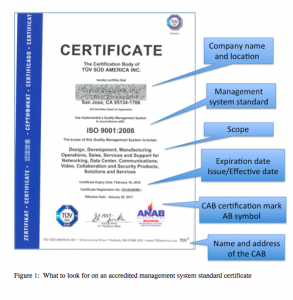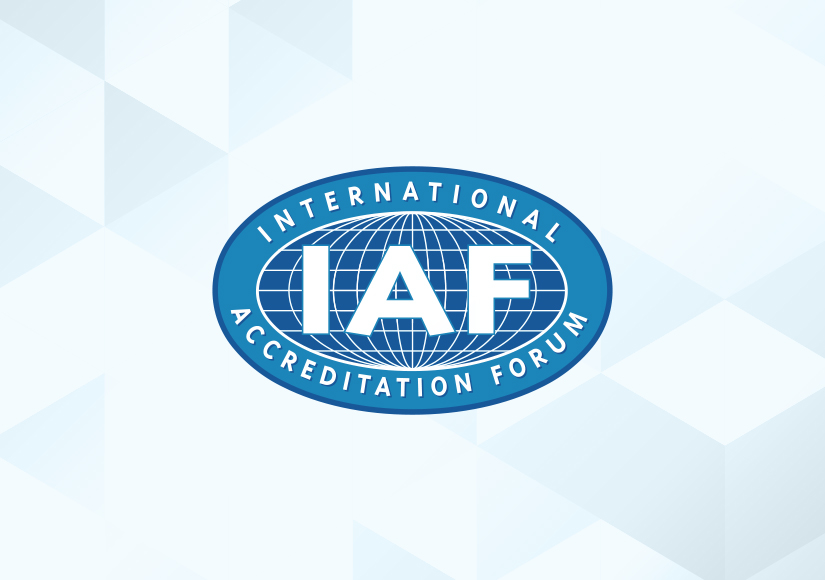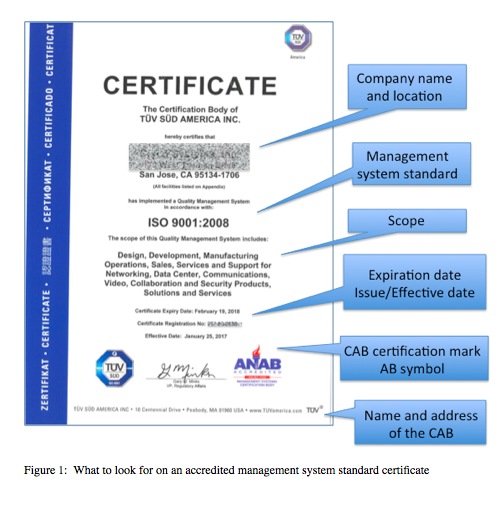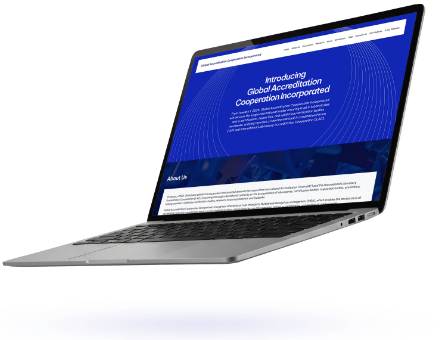By Sheronda Jeffries and Carmine Reda
Originally published in The Auditor
Companies purchase lots of things. They purchase tangible goods, such as raw materials and equipment; or intangible services, such as calibration and transportation. Most companies have basic criteria that they use to qualify and select suppliers.
Many companies require their suppliers to obtain and maintain certifications to one or more management system standards, such as ISO 9001 (quality), ISO 14001 (environmental), ISO 50001 (energy), ISO 27001 (information security), or at least adopt some aspects of a management system standard. Some industry sectors have even created their own management system standards. The automotive industry, for example, has IATF 16949, the aerospace industry has AS9100, and the telecommunications industry has TL 9000. These sector-specific standards include requirements to meet industry needs.
Certification to management system standards provides confidence that processes are in place for product or service realization, confidence that these processes are systematically performed and meet applicable requirements, and confidence that processes are adopted to improve performance.
This is important stuff. But many don’t understand how this confidence is achieved.
What are ISO/CASCO and the IAF?
Most people have never heard of ISO’s Committee on Conformity Assessment (CASCO) or the International Accreditation Forum (IAF). Both deal with strengthening homogeneity and reliability of conformity assessment or simply certification.
You may wonder what conformity assessment is in the first place. Conformity assessment is any activity to determine —directly or indirectly— that a process, product, service, or person meets relevant technical standards and fulfills relevant requirements. Conformity assessment includes certification, inspection, testing, calibration, validation, and verification activities performed by certification bodies, inspection bodies, testing and calibration laboratories, or validation and verification bodies. Collectively these organizations are called conformity assessment bodies, or CABs. Thus, certification is an output of conformity assessment activities undertaken by CABs.
ISO/CASCO works on issues relating to conformity assessment, develops policy, and publishes standards related to conformity assessment, but it does not perform conformity assessment activities itself. That is the role of the CABs. IAF deals with the accreditation of conformity assessment bodies (CABs).
The IAF’s primary purpose is to provide confidence in the competence and impartiality of entities involved in conformity assessment — the CABs and the accreditation bodies (AB) that supervise them. In fact, accreditation is the formal demonstration by an AB of the competence of a CAB to complete specific conformity assessment tasks. Members of the IAF include accreditation bodies all over the world, along with associations of CABs, such as IIOC, IQNet, and IAAR. All are required to comply with relevant ISO/CASCO standards and documents issued by the IAF for the consistent application of the ISO/CASCO standards.
Another important purpose of the IAF is to establish Multilateral Recognition Arrangements between its global AB members to reduce risk and increase confidence by ensuring that an accredited certificate may be relied upon anywhere in the world.
What does this mean to a buyer? Many buyers will require that prospective suppliers provide a certificate demonstrating that they meet the requirements of a management system standard such as ISO 9001, which is the most popular management system standard in the world. But, how does a buyer know what to look for to have confidence in that certificate?
How does a buyer evaluate the validity of the certificate?
Accredited CABs will comply with ISO/CASCO standards such as ISO 17021-1:2015, which specifies conformity assessment requirements, including what is required on the certificate such as the:
- Company’s name and location
- Management system standard used
- Scope and/or boundary of the certification
- Date the certification was issued, along with the expiration date or recertification date
- Name, address, and certification mark of the CAB
Sometimes accredited CABs will include not only their certification mark, but the symbol for the AB; however, this isn’t mandatory. See figure 1.

CABs are not required to be accredited by AB members of the IAF. To more directly control the process of qualification of their suppliers, some industries established their own certification schemes. A certification scheme defines specific requirements for management systems, products, or personnel and specifies conformity assessment rules. Both the aerospace and telecommunications industries have certification schemes that allow only accredited CABs to issue valid certificates to their standards.
If a CAB is accredited by an AB member of the IAF, then information can be provided, upon request, to verify the validity of certificates issued by the CAB. However, supply chain decisions are sometimes made very quickly and the time to submit a request and respond regarding certificate validity could result in a loss of business or contract. In most cases, this isn’t compatible with the actual speed of information exchange for most companies and industries.
Some CABs maintain public databases and provide an alternate method to quickly evaluate the certification status of a company. However, some ABs, such as Accredia of Italy, CNAS of China, and JAS-ANZ of Australia maintain publicly accessible databases. This makes checking the existence and validity of management system certifications easier and more efficient -particularly when the company may be certified, but the CAB issuing the certificate is unknown. Databases of ABs are particularly useful because they provide information about all certifications issued by CABs covered by the accreditation.
Accredia estimates that each certificate on their website is checked twice per month. JAS-ANZ reports that approximately 60 percent of the total hits to its website are due to certificate searches, which results in about one search per certificate per month.
Changes are underway
- The IAF is making it easier to verify certificate validity, which should aid buyers. At its 30th Annual Meeting, the IAF issued resolution 2016-17, which stipulates that by November 2019, certificates issued by accredited CABs must display the accreditation symbol, and/or reference the accreditation status of the CAB, including the identification of the AB. Furthermore, IAF resolution 2015-14 prevents CABs from issuing non-accredited management systems certificates in scopes for which they are accredited by November 2017.
- Additionally, the IAF is investigating the development of an IAF database of accredited management system certificates. Principles to be achieved with the database have been agreed and the IAF’s ABs will be required to identity accredited CABs under the IAF umbrella. However, participation is expected to be voluntary for accredited CABs and their clients. The expectation is that companies will want to promote their accredited certification status and the ease in verifying certificate validity will aid in supply chain decisions as the database will serve as a global -single source of truth- for accredited certification validation.
- According to project chair Randy Dougherty, who is also chair emeritus for the IAF, “The database presents a very significant opportunity for accreditation and accredited management system certification to really stand out as a global tool for business and governments to use. I am pleased with the progress with the work which will demonstrate to the IAF membership that this will be a major asset for IAF, its members, and most importantly the users of accredited certification.”
The IAF expects to vote on a formal proposal to establish the IAF database at its October 2017 meeting.
So what should you do?
Buyers should consider the language used in supplier qualification documents and in calls for tender or in requests for quotation. Do you require ISO 9001-accredited certification, ISO 9001 certification, or compliance with requirements of ISO 9001?
Request and review certification documents noting the CAB name and also the scope of the certification to assure that it matches the product or service that you are purchasing. Checking that the CAB is accredited may require contacting the CAB, the AB, or the IAF. Last year alone, ISO/CASCO reported that 93 percent of the complaints it received were related to whether a CAB maintained accredited certification. In addition, the IAF secretariat reports that the majority of the inquiries and complaints that are received at the IAF are due to questions investigating the validity of accredited certification.
Always check the expiration date or recertification date. With the deadline for transition from ISO 9001:2008 to ISO 9001:2015 nearing, this will become more and more important as accredited ISO 9001:2008 certifications will not be valid after September 2018.
Changes happen and sometimes a certification scope is changed or certification is suspended or revoked.
In the future, a quick review of the certificate will provide not only the CAB name and mark, but also the accreditation status of the CAB including the identification of the AB and perhaps the accreditation symbol.
If agreed at the October 2017 meeting, the IAF database of accredited certification is intended to provide a central global location for verification of certification validity, helping buyers to identify potential suppliers and potentially increasing market exposure for certified companies.
You can provide your ideas and suggestions to help shape the IAF database by contacting the IAF secretariat.
Why accredited certification matters
Accredited certification reduces the risk to buyers by assuring that accredited certification bodies are competent to impartially and independently perform the conformity assessment activities they undertake in certifying that companies meet the requirements of ISO 9001 and other management system standards.
Many government officials rely upon accredited certification. Graziella Siciliano, the coordinator of the Energy Management Working Group of the Clean Energy Ministerial with the U.S. Department of Energy, has expressed support of the IAF database in helping gather supplier data on accredited management system certification in their countries and globally as a key input.
Industry organizations like the Dental Trade Alliance, which has more than 200 members representing companies from North America and QuEST Forum, a global association of approximately 200 companies dedicated to improving the quality and sustainability of products and services in the telecom and information and communications technology industry, both rely significantly on quality management system certifications within the supply chain.
According to the IAQG, an association of every major aerospace, space, and defense company throughout the world, “As supply chains grow increasingly global and complex, the need for accurate and current data is more important than ever and the IAF community is uniquely positioned for collecting and sharing data on accredited certification.”
The website www.publicscectorassurance.com is a collection of case studies demonstrating how accredited conformity assessment helps industry, government officials, and regulators.
If you have an example of how accredited conformity assessment has supported you or your supply chain in the public sector, share your story and help educate others. And of course, if you have complaints regarding accredited certification, you can always contact your accredited CAB, its AB, and even the IAF.
A website, www.business-benefits.org, is being developed to demonstrate the value that individual businesses derive from the use of standards and accredited services. Additional examples will be added to the site in the coming months.
Closing thoughts
Remember, the focus is upon confidence -reducing risks and increasing the confidence to ensure that health, safety, and environmental conditions are satisfied and that quality requirements are systematically and consistently met.
Conformity assessment demonstrates that products, services, processes, systems, and persons meet the requirements of a standard. Conformity assessment ranges from self-declaration to accredited certification by an independent accredited conformity assessment body covered by IAF MLA with vision “certified once – accepted everywhere.”
All may have an appropriate place and value within your supply chain. With knowledge, you can decide the best fit.



